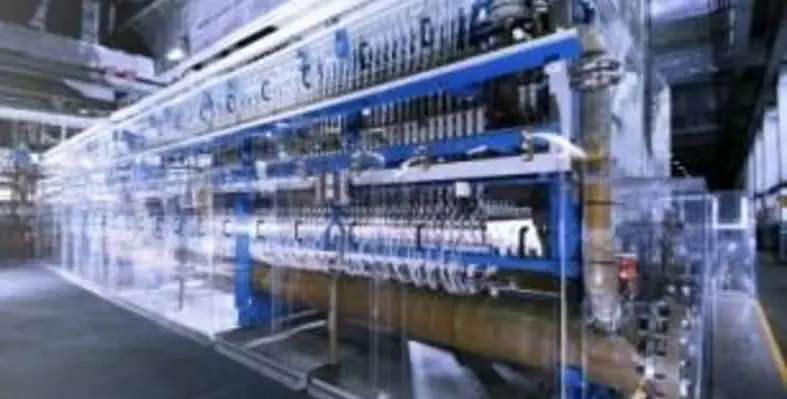thyssenkrupp is providing the NaCl-ODC electrolysis technology that aims to lower power consumption and indirect CO2 emissions by up to 25 per cent compared to standard production processes in Ghana
Around 70 per cent of all chemical products use chlorine in their manufacturing process. At the same time, the production of this important base chemical is one of the most energy-intensive processes in the chemical industry.
Engineers from thyssenkrupp have now been able to develop the technology even further: By raising the current density of the electrolyser from four to six-kilo amperes, output was increased by 50 per cent. Electrolyzers with the same output capacity can now be built about one third smaller, resulting in a significantly lower total cost of ownership. Plant operators profit from a smaller plant footprint, lower maintenance and from the generally high efficiency that comes with the NaCl-ODC electrolysis process.
Philipp Nellessen, CEO of thyssenkrupp Industrial Solutions for Sub Saharan Africa, said that especially for Ghana’s chlorine plant operators, this technology aims to reduce their carbon footprint and increase the plant output as well as help the Ghana government’s agenda to protect the environment and develop cost-effective industrial solutions.
thyssenkrupp has commissioned the first large-scale reference for this technology at the end of 2015 for BEFAR Group in China. Denis Krude, CEO of thyssenkrupp Uhde Chlorine Engineers, commented, “The first large-scale plant in China successfully demonstrated that the technology makes chlorine production much more eco-friendly and cost-efficient.”
“A chlor-Alkali plant in Ghana contributes significantly in supporting the Governments Anchor Industry and the 1D1F (one district one factory) initiatives aimed at growing the economy through rapid industrialisation,” added Seth Miah, regional manager for West Africa at thyssenkrupp.
As energy prices are on the rise and sustainability targets become more and more important, NaCl-ODC is an increasingly attractive option for future competitiveness in the chlor-alkali market. As it is based on the general design of the single element technology, integration of this technology into existing plants can be done easily. Cell size and brine circulation are 100 per cent compatible. Plant owners can easily upgrade existing infrastructures either to lower electricity consumption, or to increase their production capacity without needing additional space or a new build.














